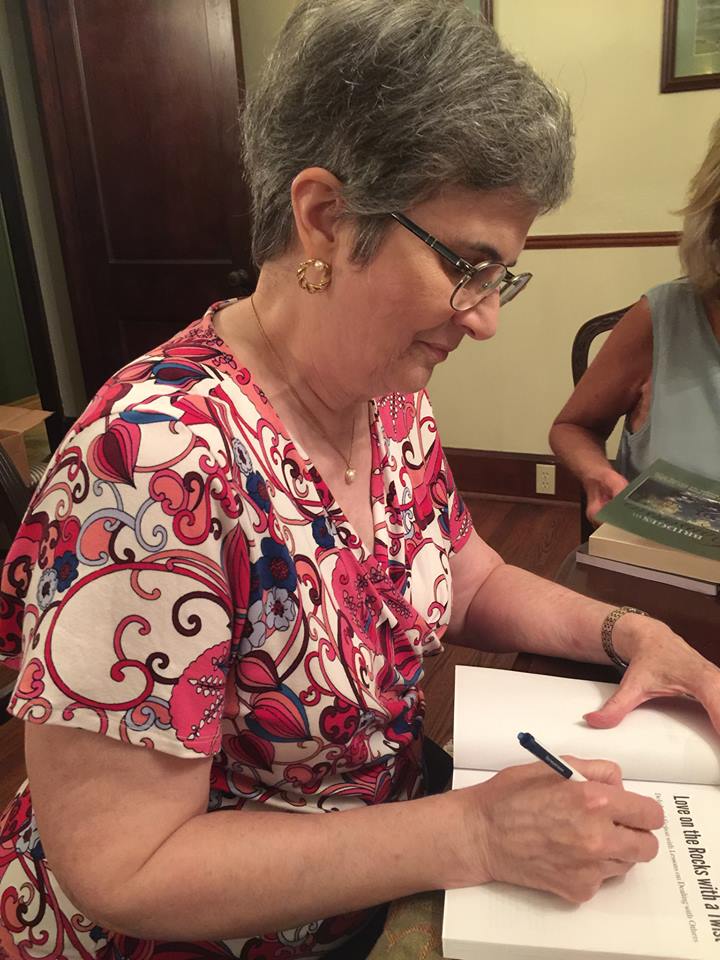Good news–I’ve been making great headway on my new book and am very close to having a complete draft to send out for critique and editing.
The book deals with productive discussions of sensitive issues such as sexual harassment, implicit bias, COVID19 vaccines, or even your neighbor’s naughty dog. If you have read my other books, Bridges to Consensus and Love on the Rocks with a Twist, or even better, taken training or consultation from me, you’re ahead of the game. The skills you’ve read or heard about for resolving disagreements are the same skills I recommend for discussing touchy topics, simply applied in different contexts.
Here’s an excerpt from my draft book about how a professional counsellor/columnist advised a reader to deal with a sensitive family issue using a similar approach:
Real Life Advice from an Expert
Hara Estroff Marano writes a regular advice column in Psychology today. In the May 2021 issue, she addressed a question from a woman whose step sister, living with and caring for their parents, is a hoarder. Concerned that the clutter might endanger the parents’ safety, the woman had tried confronting her sister several times, without success.
Estroff Marano suggested a diametrically opposite approach: To diffuse the resistance created by previous confrontations, she should begin by engaging her sister in ordinary conversations about anything except the hoarding. After regaining her sister’s trust, she could try things like asking her sister to take pictures of the cluttered areas. “Likely, the pictures will not look like the home she visualizes in her head…. At some point the topic is likely to arise organically. You can then expose your sister to the expertise that currently exists…. There’s no guarantee, but it’s a far wiser approach than confrontation.”
In essence, Estroff Marano tells her reader how to practice what I call The Silver Rule: avoid or minimize directly indicating that another person is wrong, as by direct confrontation, arguing, or even non-verbal wrong-making like sighing or rolling your eyes.
Think back to your experiences when direct confrontation backfired, only making matters worse. What can you learn from those experiences? Rewind those tapes and think about other ways you might have dealt with the person without overtly contradicting them. It’s never too late to learn from something that happened in the past. Sometimes, it’s not even too late to revisit the matter with that person. Plan some ways you might do that.
And if you get stuck, contact me. That’s what I’m here for.


This is very good information that I can use. Thank you.
That’s good news. Thanks, John. I think I might be within about six months of having the book on the market. Hope you will enjoy all of it as much as you liked this excerpt.
Congratulations, Margaret, on bringing better paths to “Wellbeing” to our world.
And thank you, Sharon, for this encouraging note.Things like this keep me motivated.
Hello Margaret, I am still a continuing admirer of your advancement in very import attention to many of our
life complications, I will appreciate being one of your blog /message participants, or even, at some stage, a more urgent subscriber. Bless you! Patt B
That was a very heartening comment, and you are more than welcome.
Love this Margaret. I hope your book helps those on the receiving end of being corrected! Family members sometimes feel it’s their job to change your political outlook or get a different job or even try to persuade you not to be a vegetarian!
Thank you Cheryl. Yes, I do believe other parts of the book will help those on the receiving end of unwelcome advice.
thanks again, Margaret. It is always good to hear your advice. I see that on your blog you are perhaps including some Daily Compass topics. I think I’m right about this. l’ll check it out! always interested, patt behler in MO
Thanks,Patt. Knowing people enjoy the blogs keeps me going.
Hello once again Margaret! How really exciting to receive a new approach based on old problems! You are continuing to surprise me with approaches to our common aspects of ordinary life and how to make them flow more smoothly. Thanks, I will be watching for your new published tome. May I add one of my ideas that may be of interest to you in how “we” approach certain aspects of life as we age? I have decided in my elderly times (I’m 94 now) that I will not waste emotions or time or ill will showing “ANGER” vocally, written or by face. It just isn’t worth it!! I try to see things in a way that doesn’t bring up anger; this requires me to learn how to express my attitudes or even political opinions in a way that I can express them without any angry aspect showing. Hope this makes some sense to you. My best to you, always.
best thoujghts to you fromn me!.
Thanks Patt. It’s great to know you are enthused about the book. The text actually does treat the issue of not mouthing off in the throes of anger or other negative emotions.
I hope it will be on the market by Dec. or Jan.